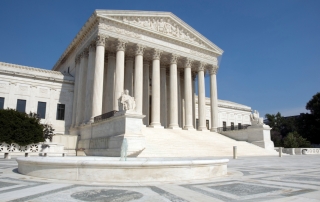It remains to be seen whether states can force businesses to collect taxes from sales generated online, but if the Supreme Court of the United States’ recent rejection of an appeal by Amazon.com and Overstock.com is any indication, we might be inching in that direction.
While the conversation surrounding the Marketplace Fairness Act is heating up, the Supreme Court ruled on Cyber Monday that they wouldn’t hear the two online retailers’ appeal of a New York law passed in 2008—known as the “Amazon law”—which requires online retailers that pull in more than $1 million each year and have online marketing affiliates in the state to collect sales taxes on shipments sent to New York residents.
The two online retailers say it’s unconstitutional to force businesses that don’t have physical facilities on the ground to pay sales taxes in that state. But proponents of such laws say that states lose as much as $23 billion each year in uncollected taxes. As the law stands now, buyers are supposed to pay such taxes on their own, but many people don’t.
In 2011, Illinois passed a law similar to New York’s, but that state’s highest court shot it down in 2013 leaving many to speculate as to whether the SCOTUS would hear an appeal of New York’s law. They did not.
With more than 10,000 taxing jurisdictions in the United States, the fate of the Marketplace Fairness Act is of utmost importance to all retailers who conduct business online. Such a bill, if passed, would force businesses to dramatically change their order management processes, as they would be required to report and file taxes in all those jurisdictions.
We at OrderLogix will be sure to keep abreast in all the developments surrounding the Marketplace Fairness Act and similar laws, relaying that information directly to our customers.

